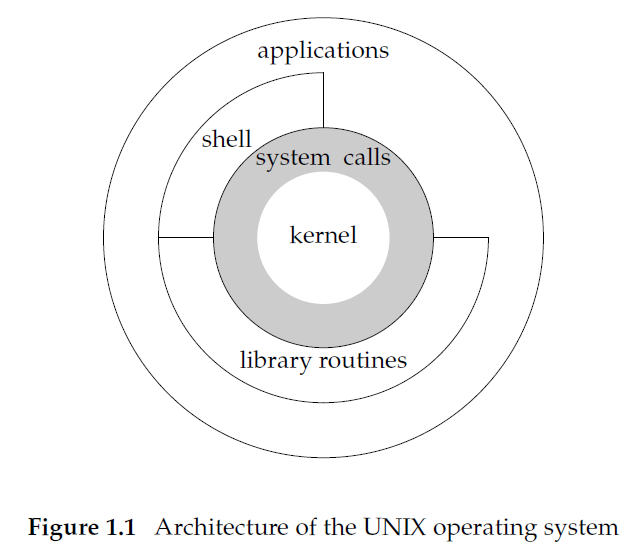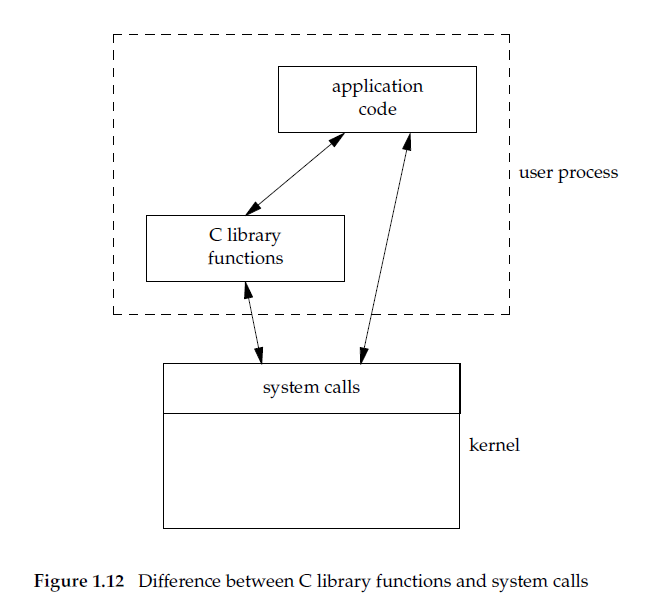1.2 UNIX Architecture

1.3 Logging In
Login Name
/etc/passwd stores:
- login name
- user id
- group id
- etc.
Shell
Explains availability of different shell in different UNIX systems, and their different features and history.
1.5 Input and Output
Unbuffered I/O v.s. Standard I/O
Functions:
| Functions | Header file | |
| Unbuffered I/O | read, write, etc | unistd.h |
| Standard I/O | scanf, printf, etc | stdio.h |
By using Standard I/O, you don't need to maintain buffer by yourself.
1.6 Programs and Processes
Process Control
Three primary functions: fork, exec, waitpid. (Didn't explain further)
1.7 Error Handling
The file errno.h defines the symbol errno and many error constants.
man 3 errno describes the meanings of error constants.
errno is never set to 0, so you should examine its value only when the return value from a function indicates that an error occurred.
Helper functions:
| Signature | Header file |
| char *strerror(int errnum) | string.h |
| void perror(const char *msg) | stdio.h |
strerror:
This function maps errnum, which is typically the errno value, into an error message and returns a pointer to the string.
perror:
It outputs the string pointed to by msg, followed by a colon and a space, followed by the error message corresponding to the value of errno, followed by a newline.
1.10 Time Values
- Calendar time, also called Epoch time, start from 1970/01/01 00:00:00
- Process time, also called CPU time, measured in clock ticks, which have been 50, 60, or 100 ticks per second.
Unix System maintains three values for a process:
- Clock time
- User CPU time
- System CPU time
$ cd /usr/include
$ time -p grep _POSIX_SOURCE */*.h > /dev/null
real 0m0.81s
user 0m0.11s
sys 0m0.07s1.11 System Calls and Library Functions
